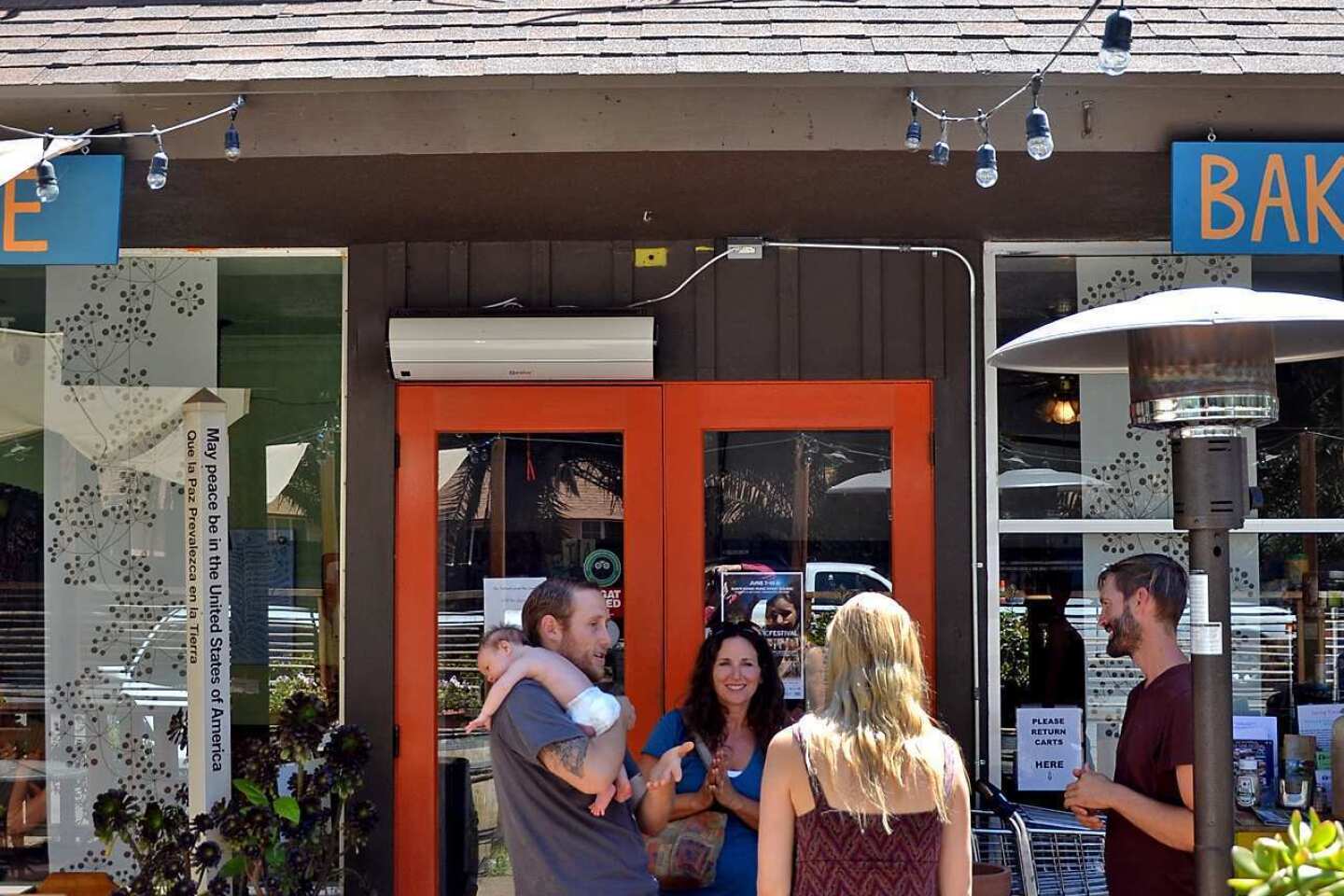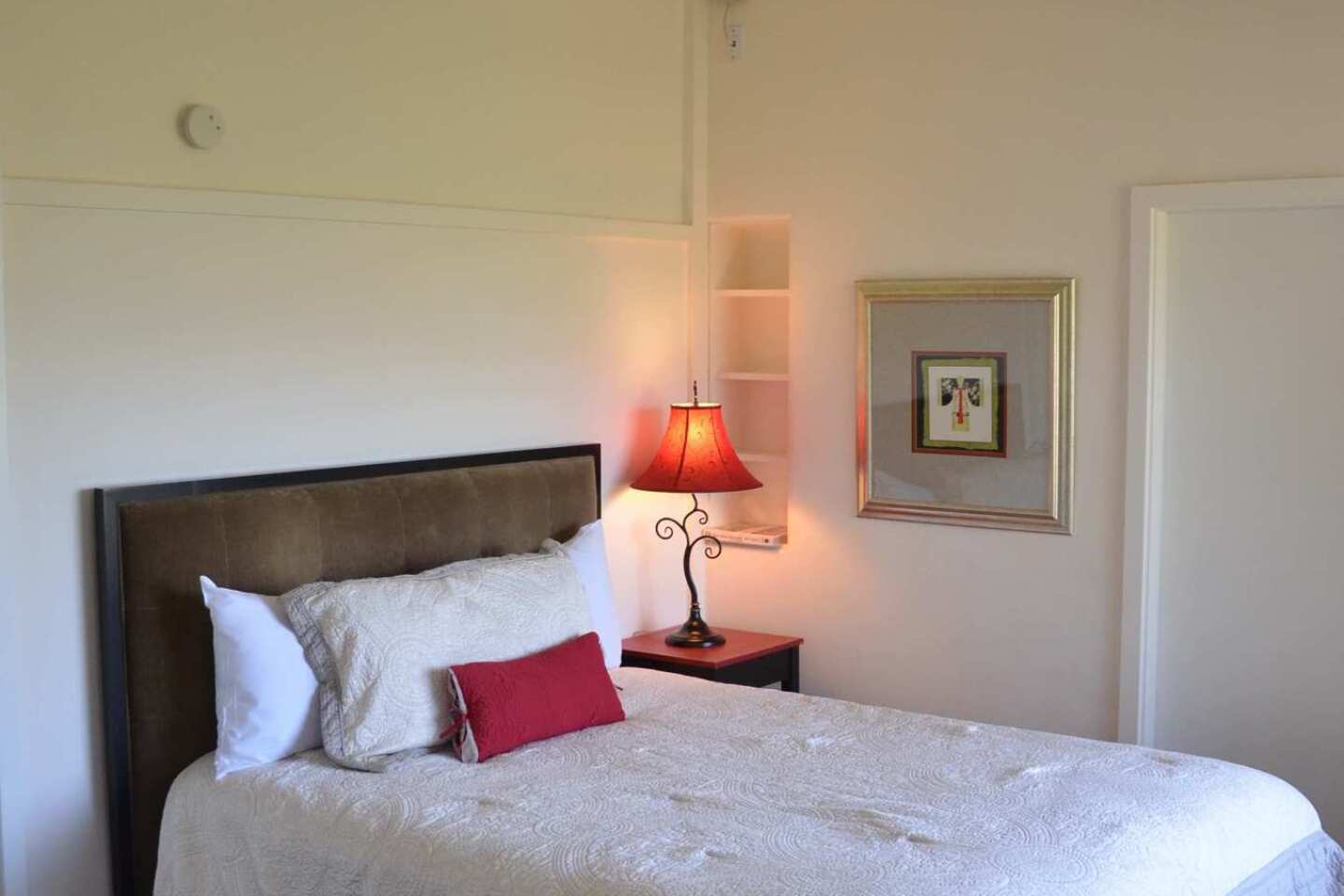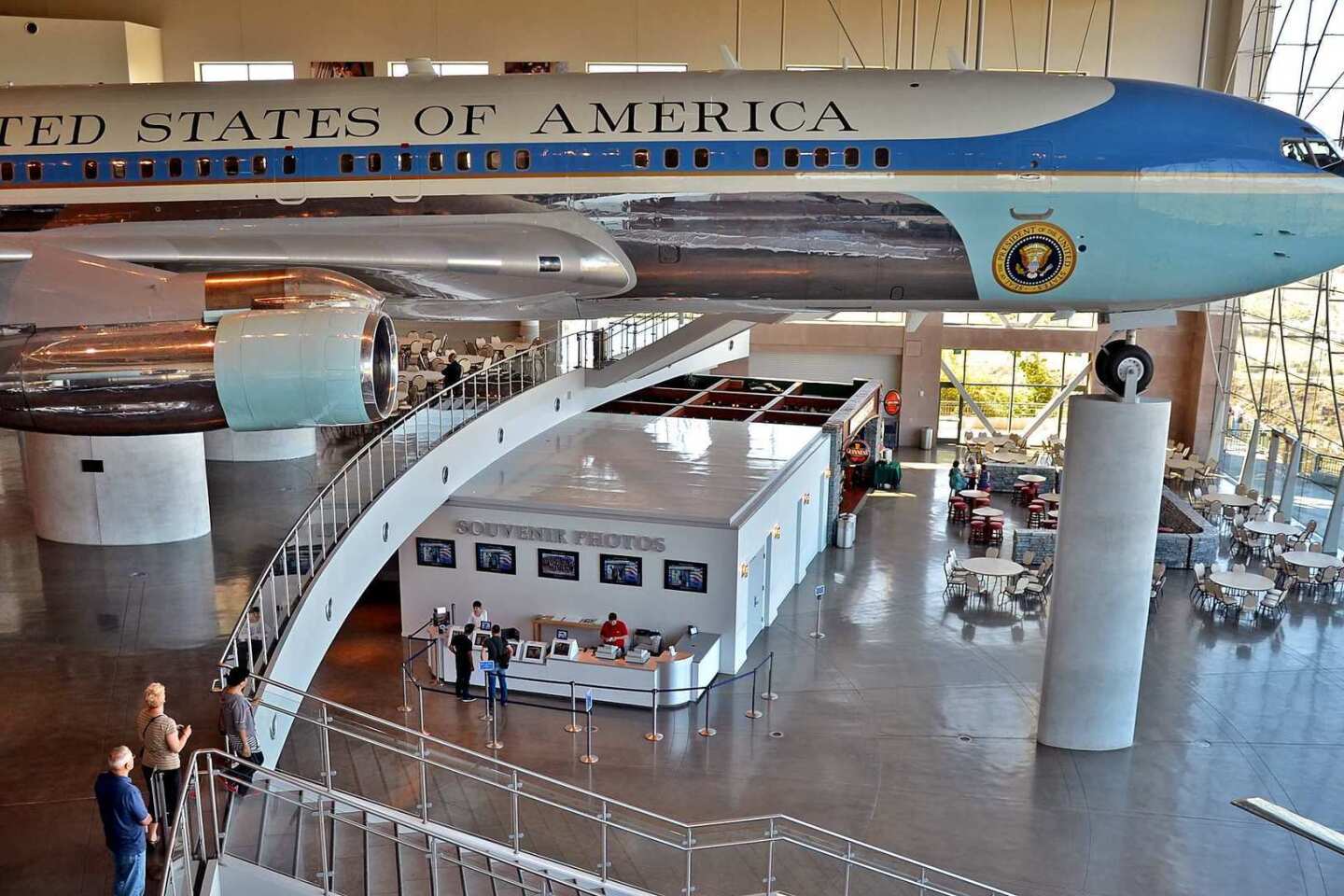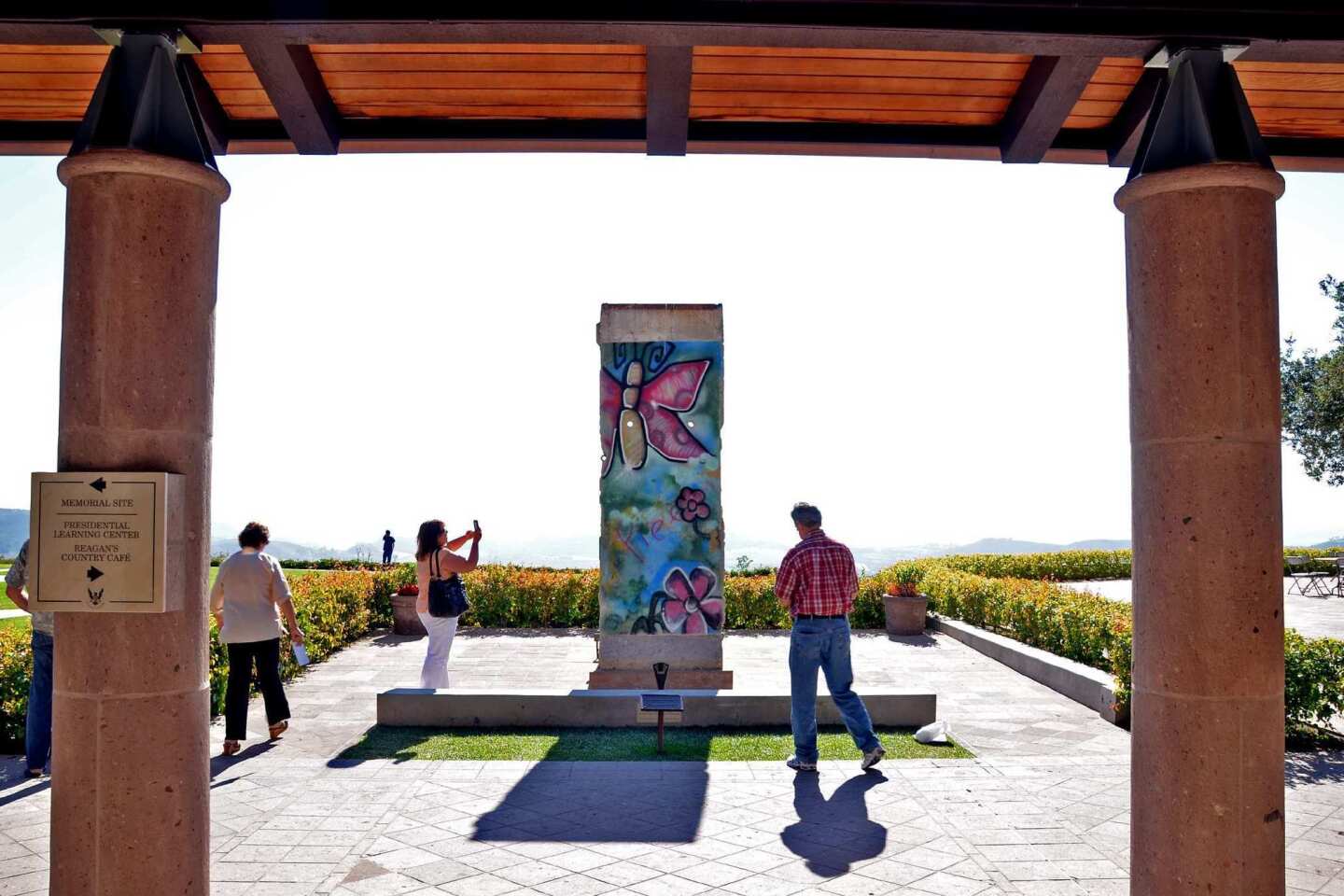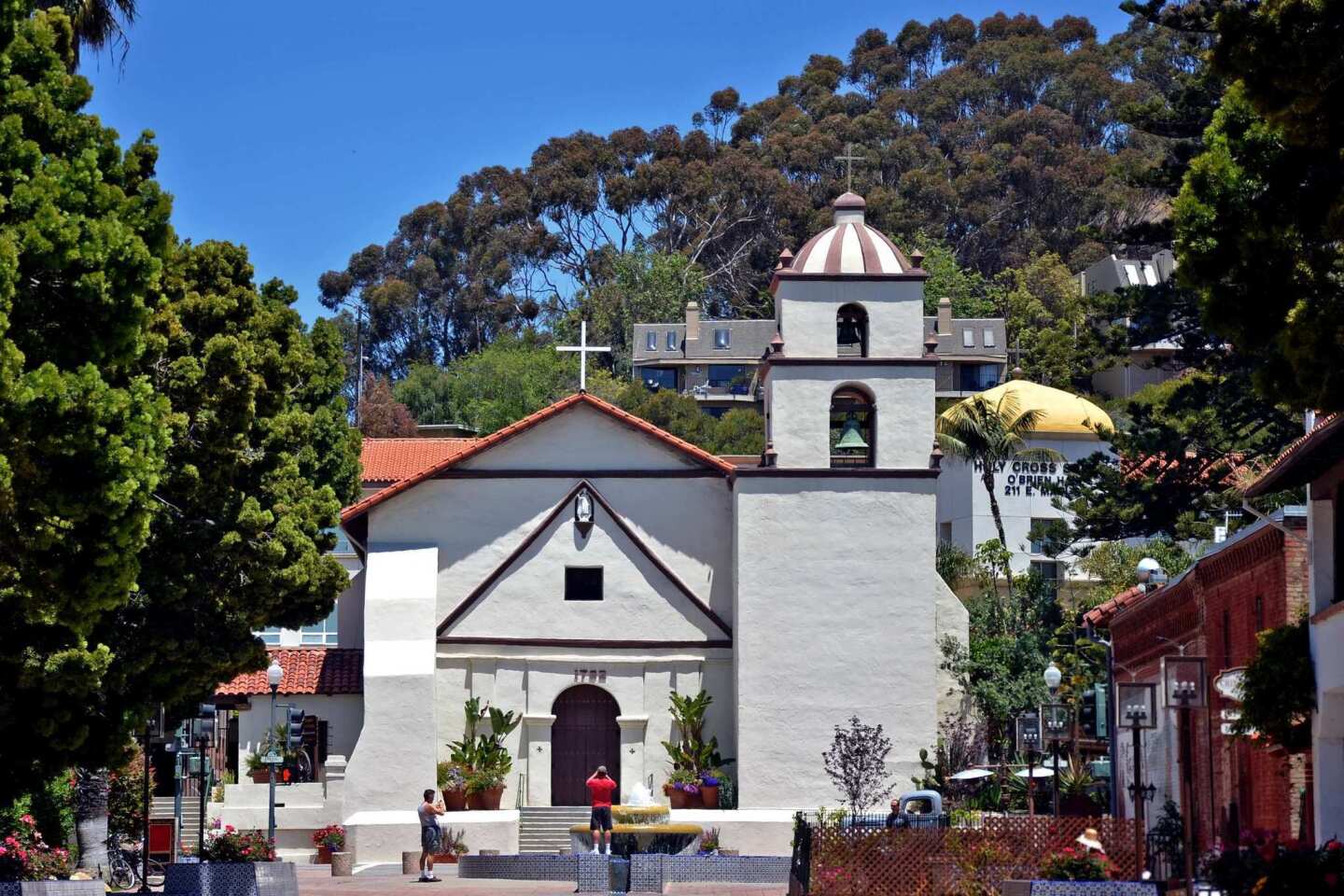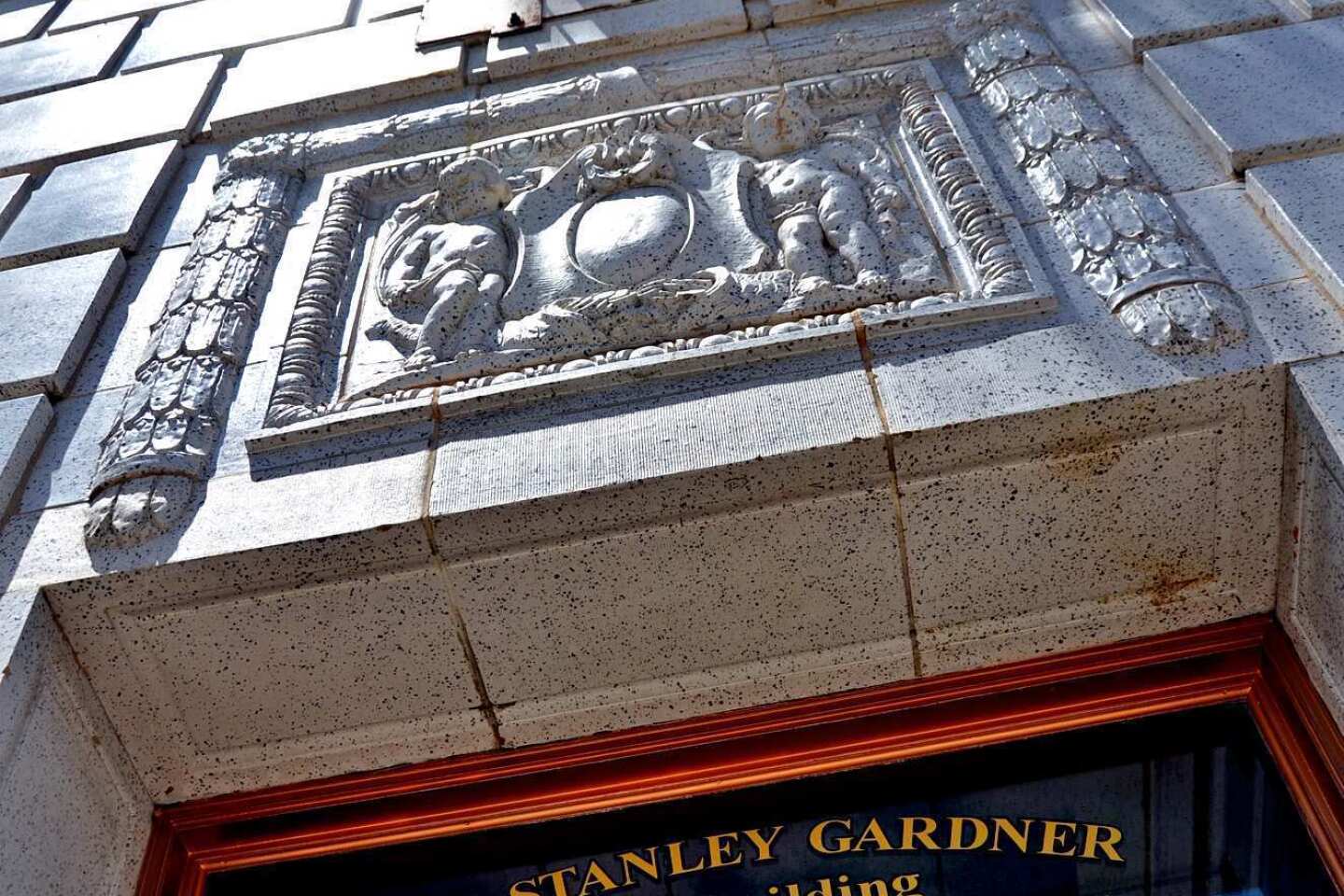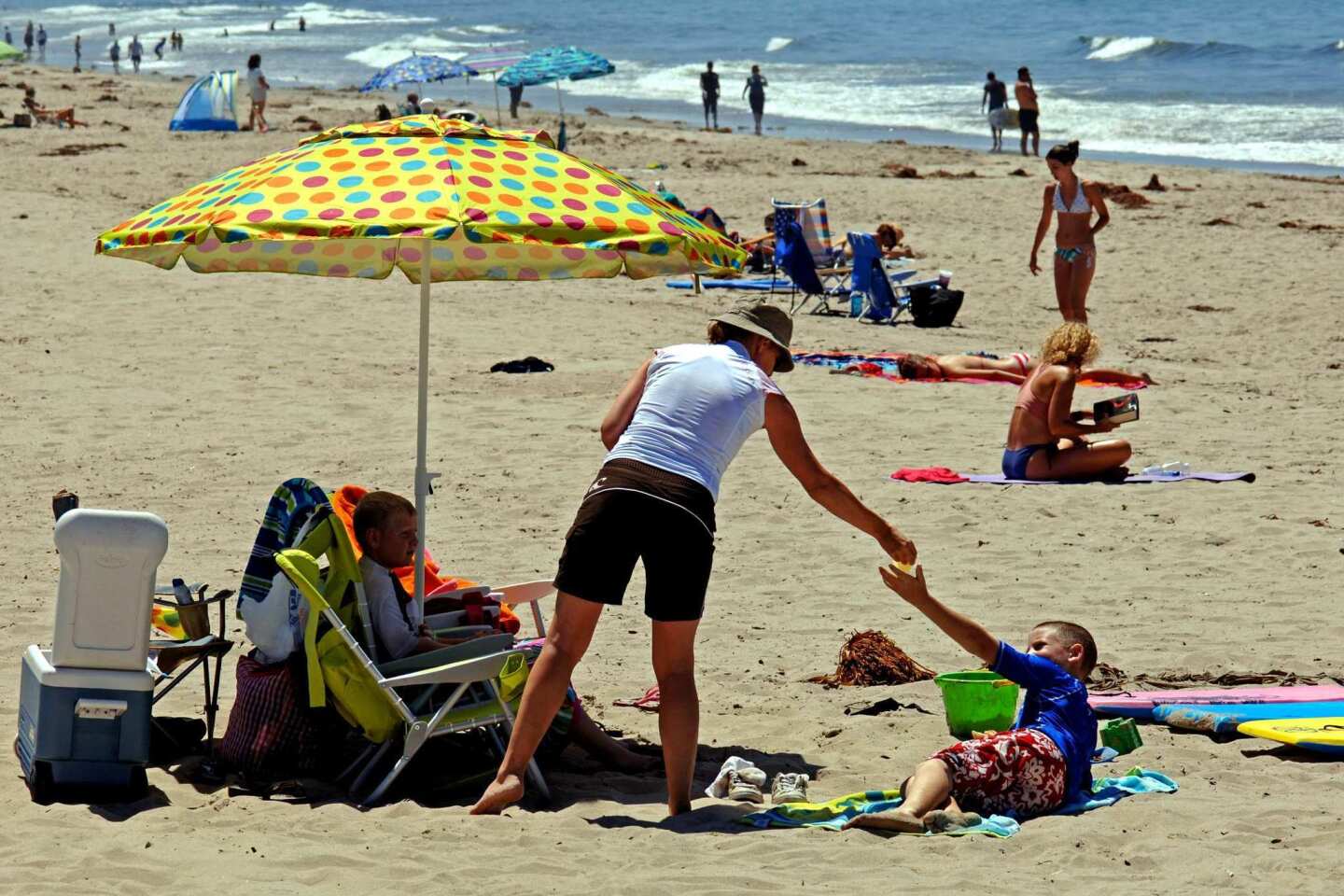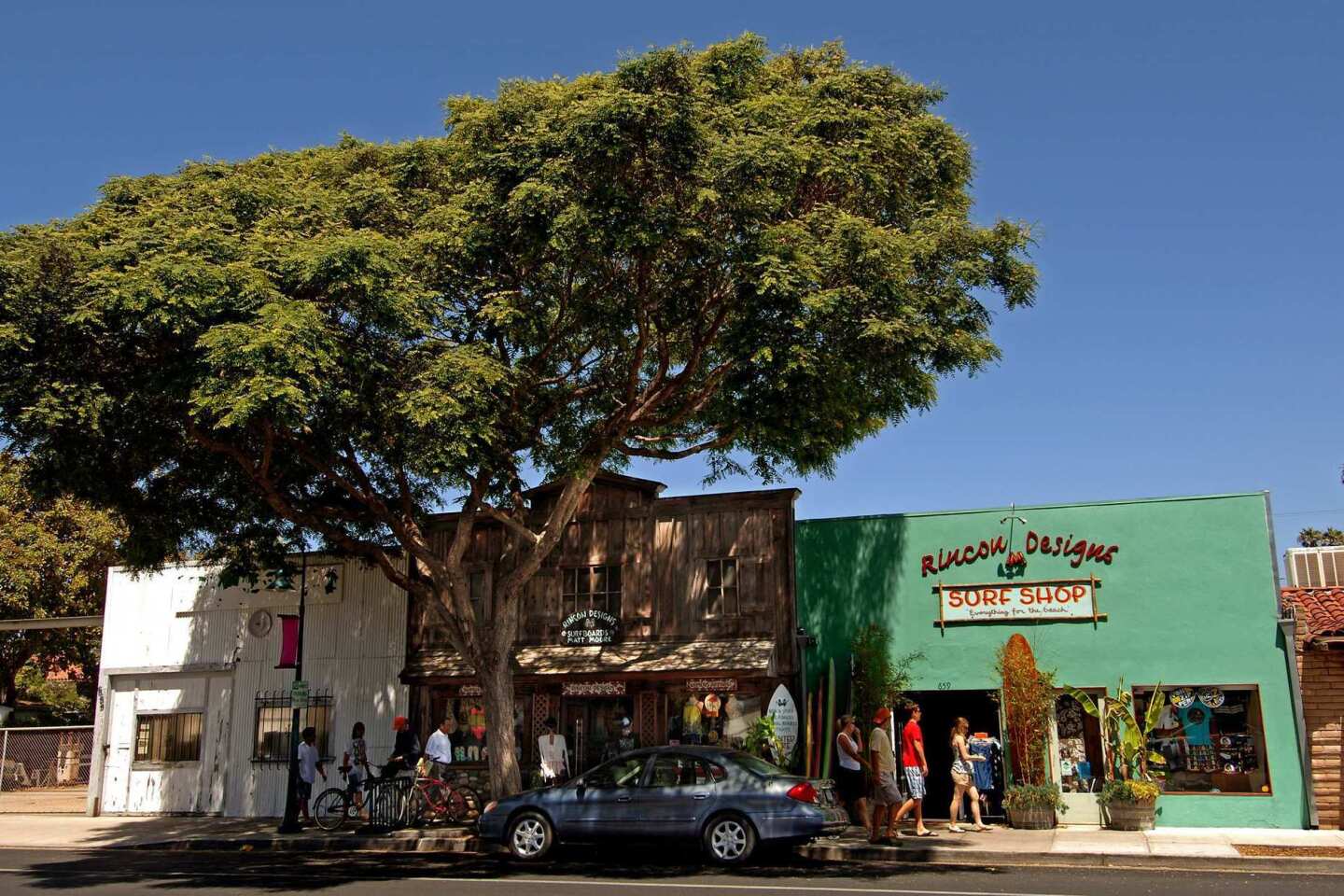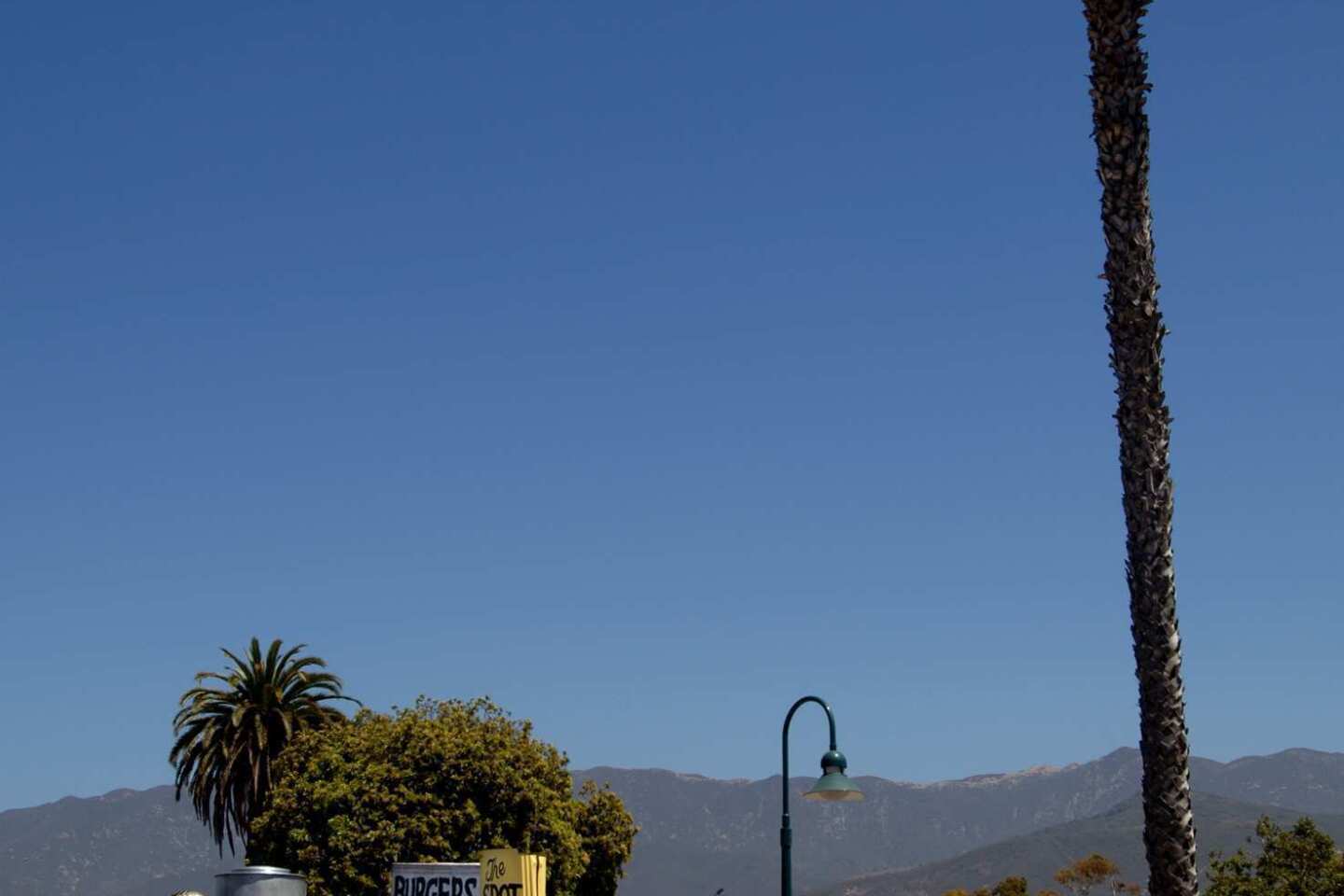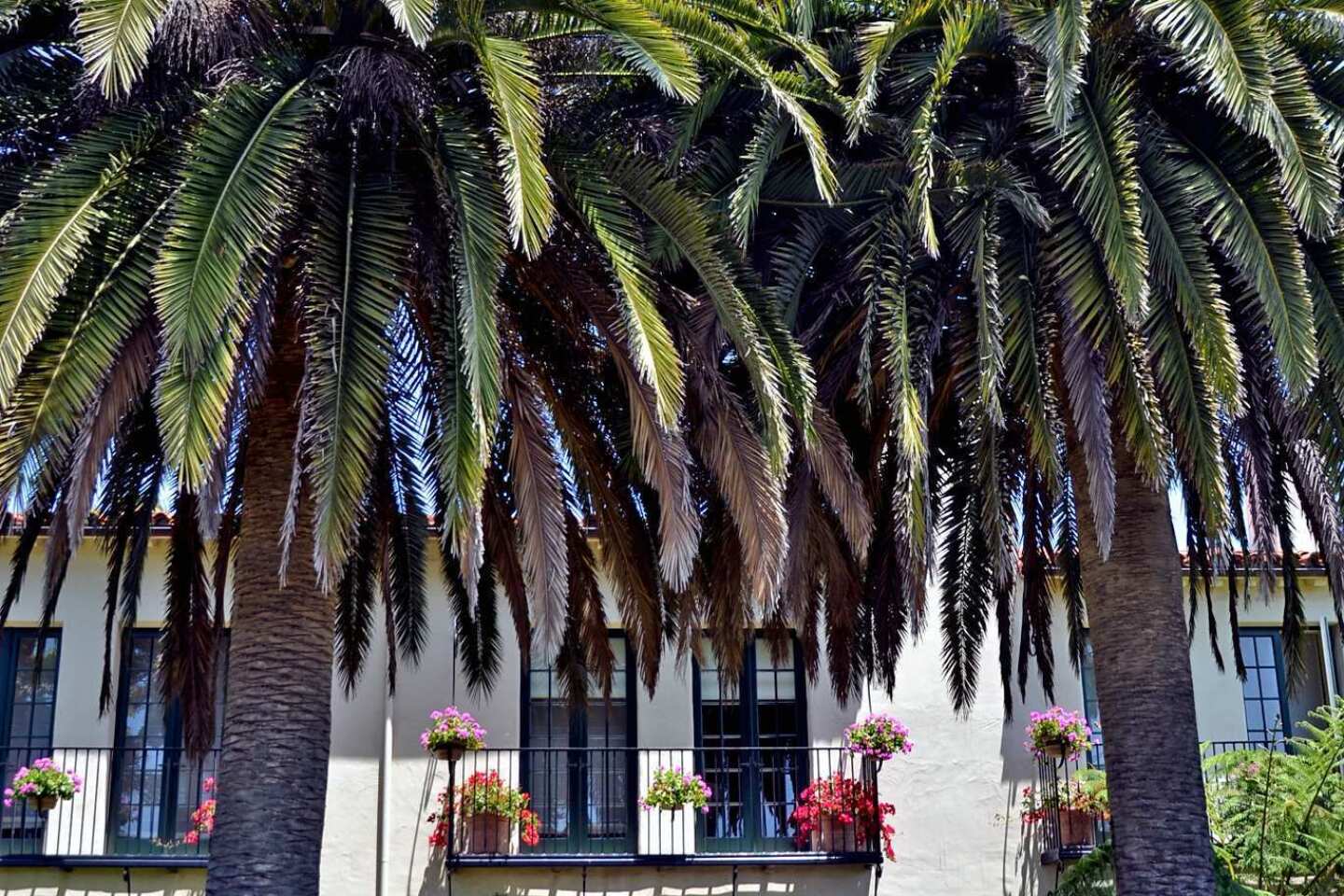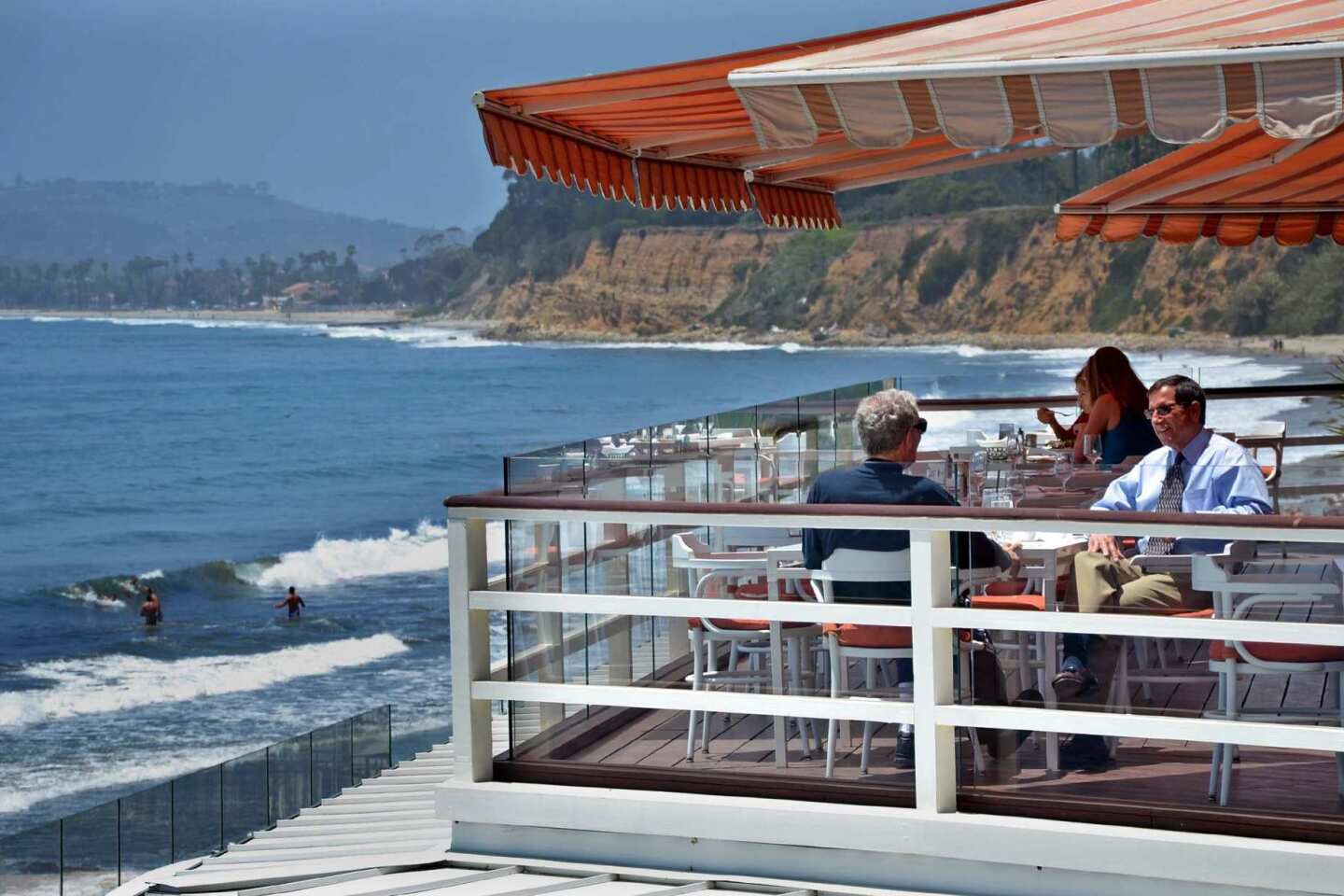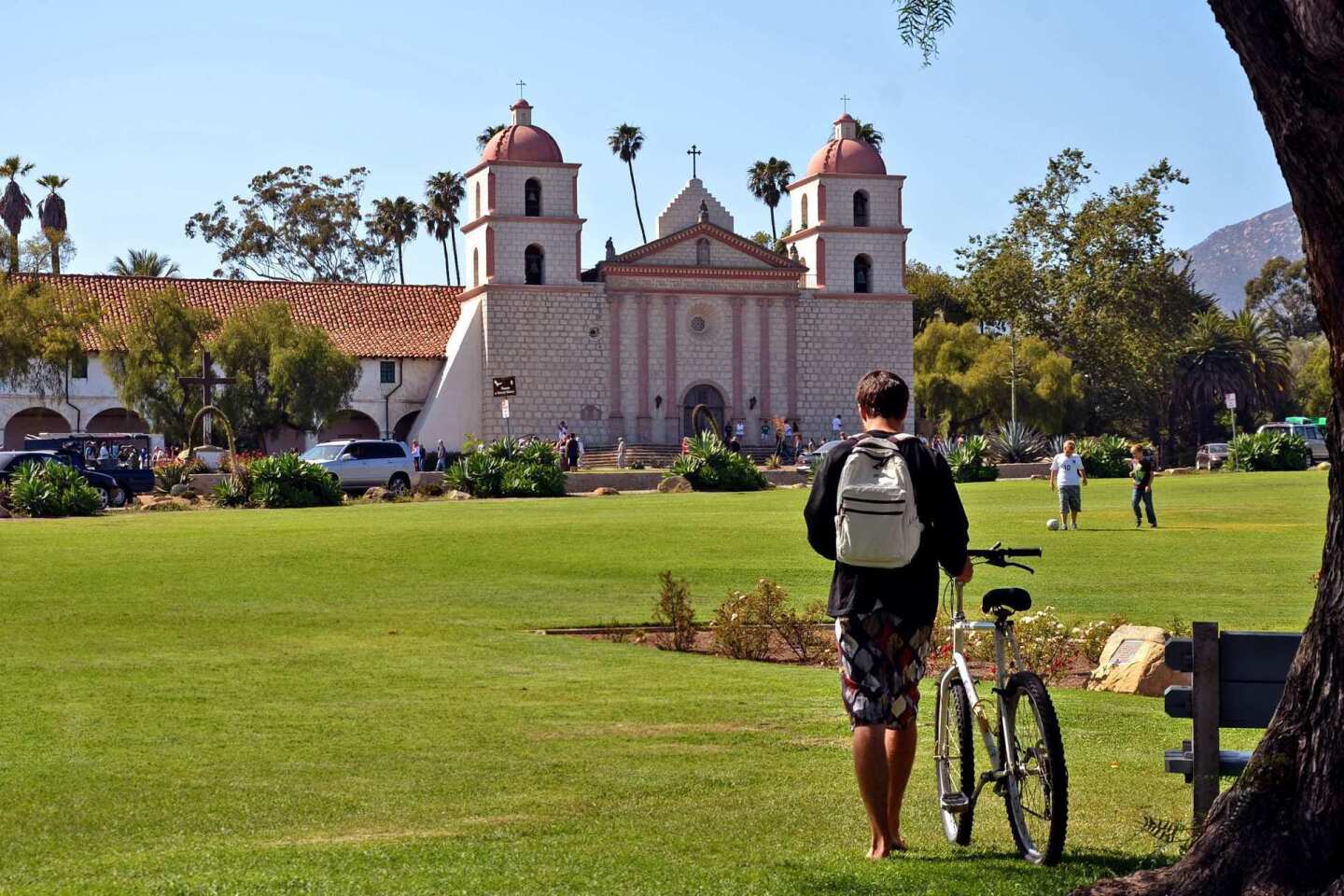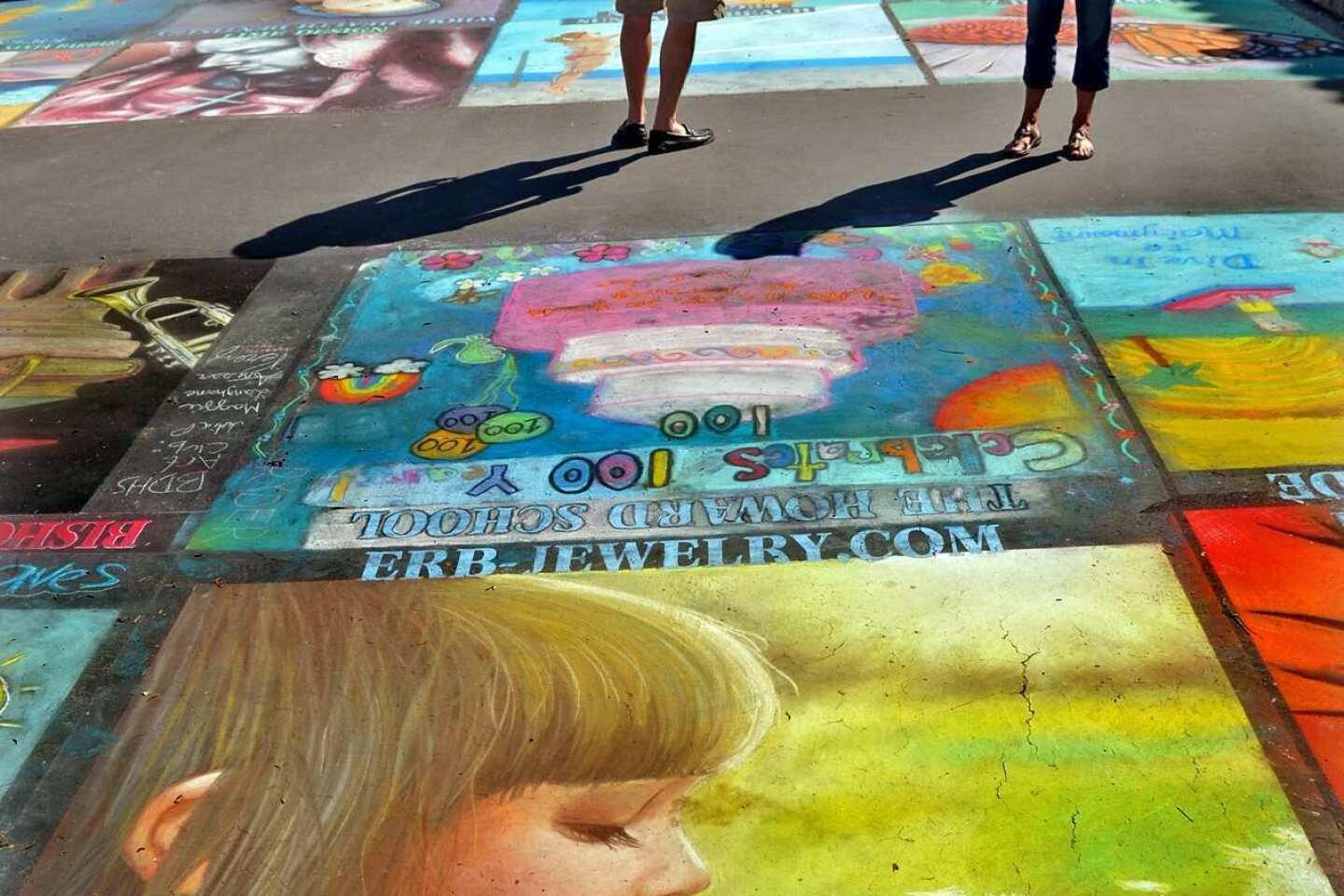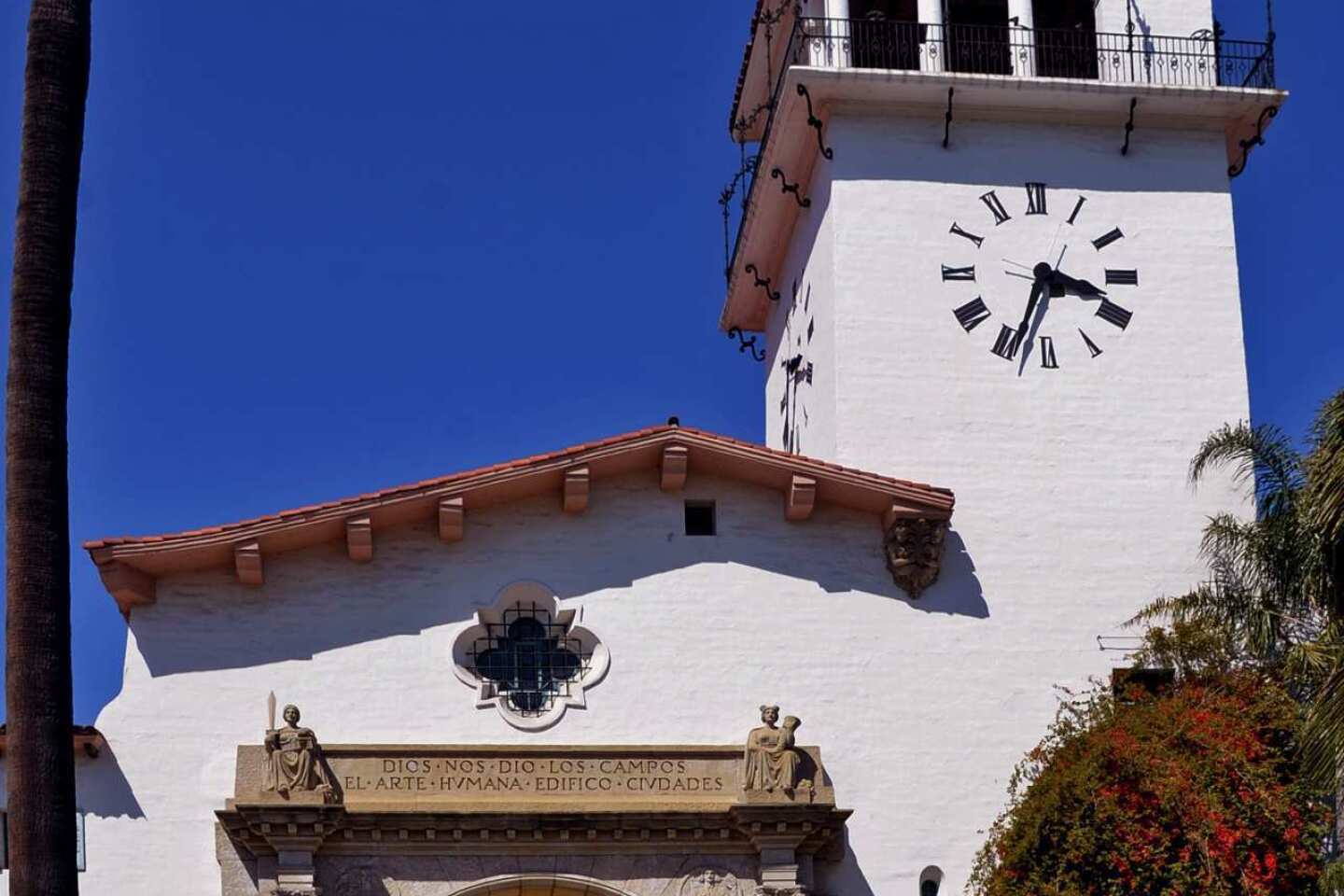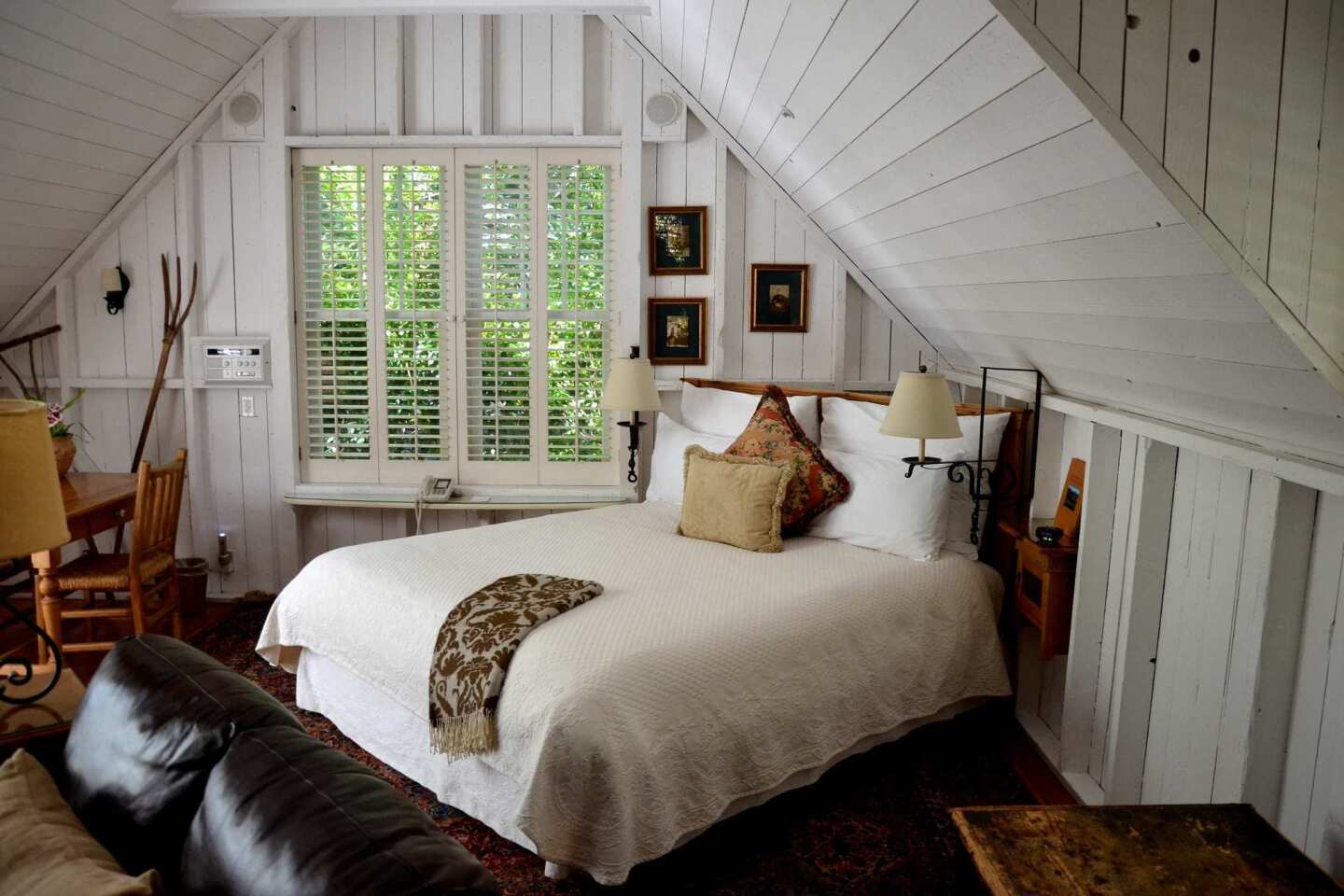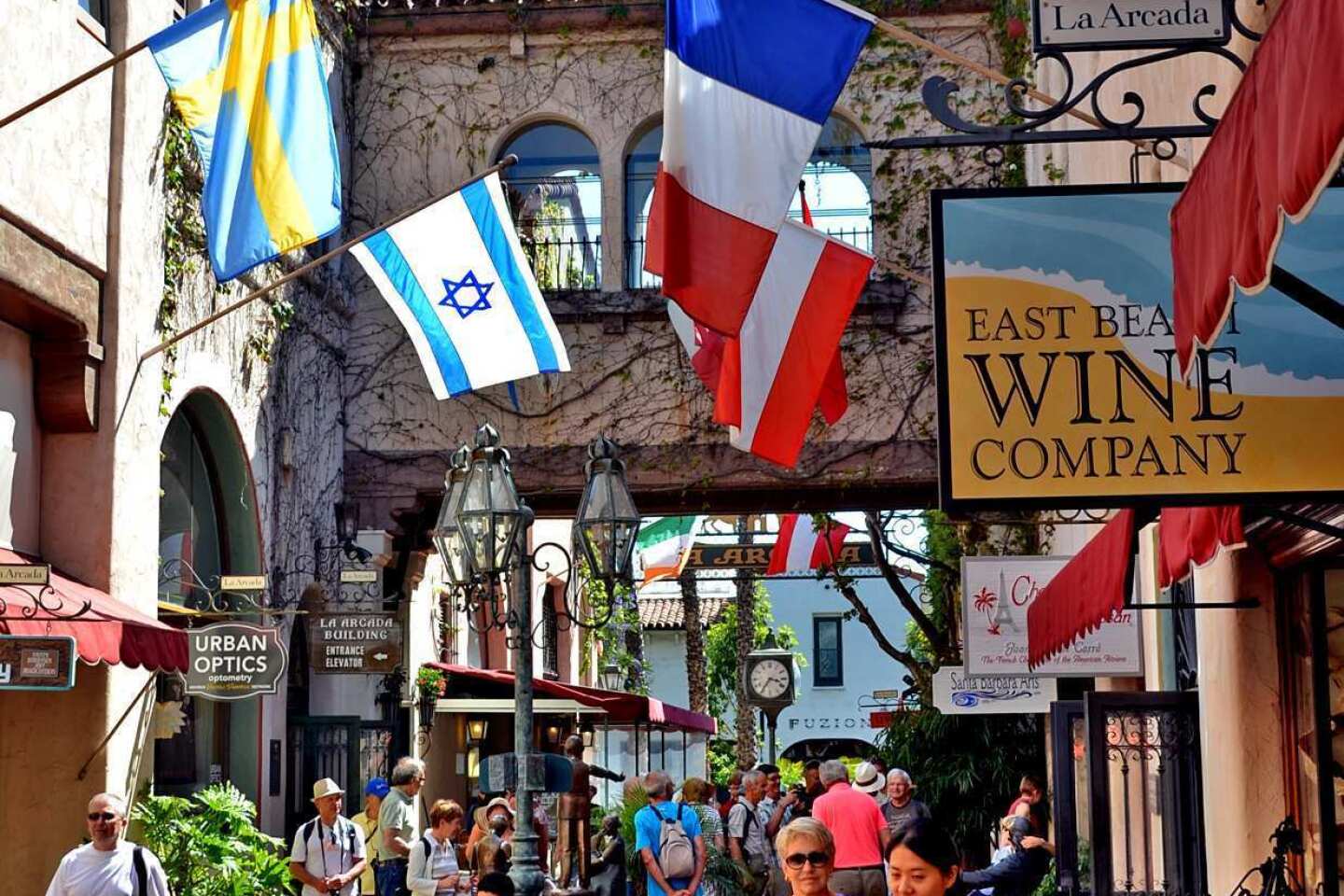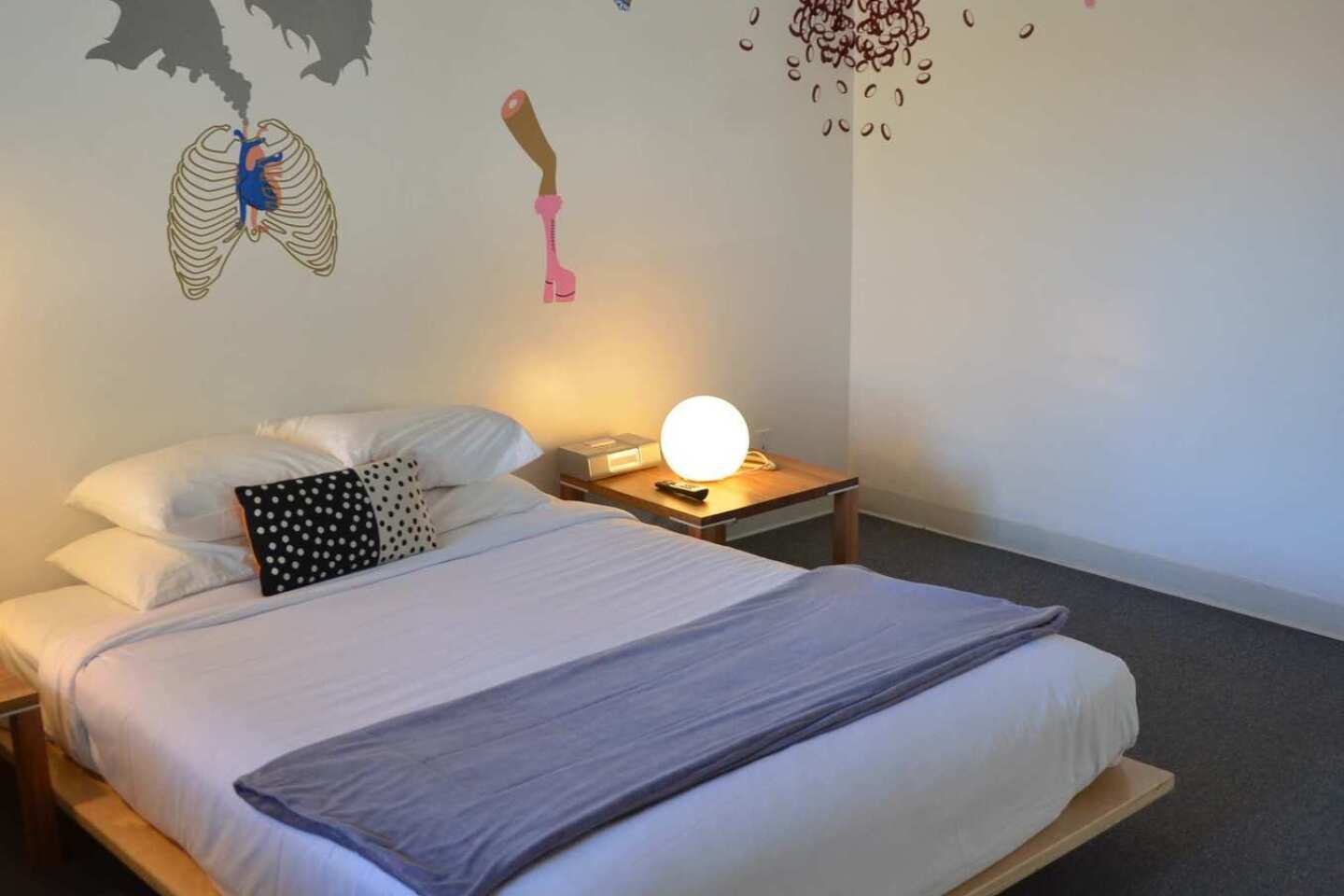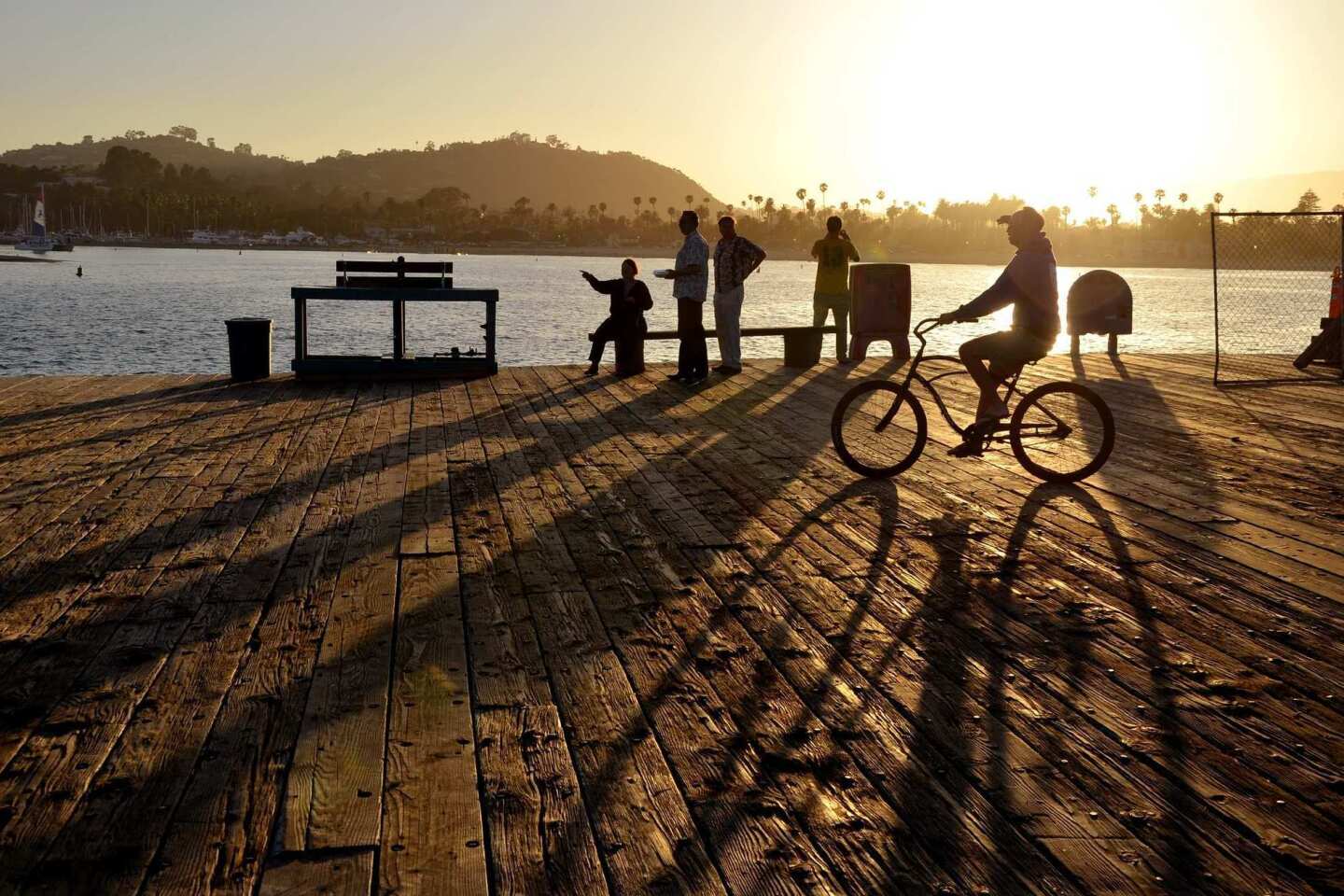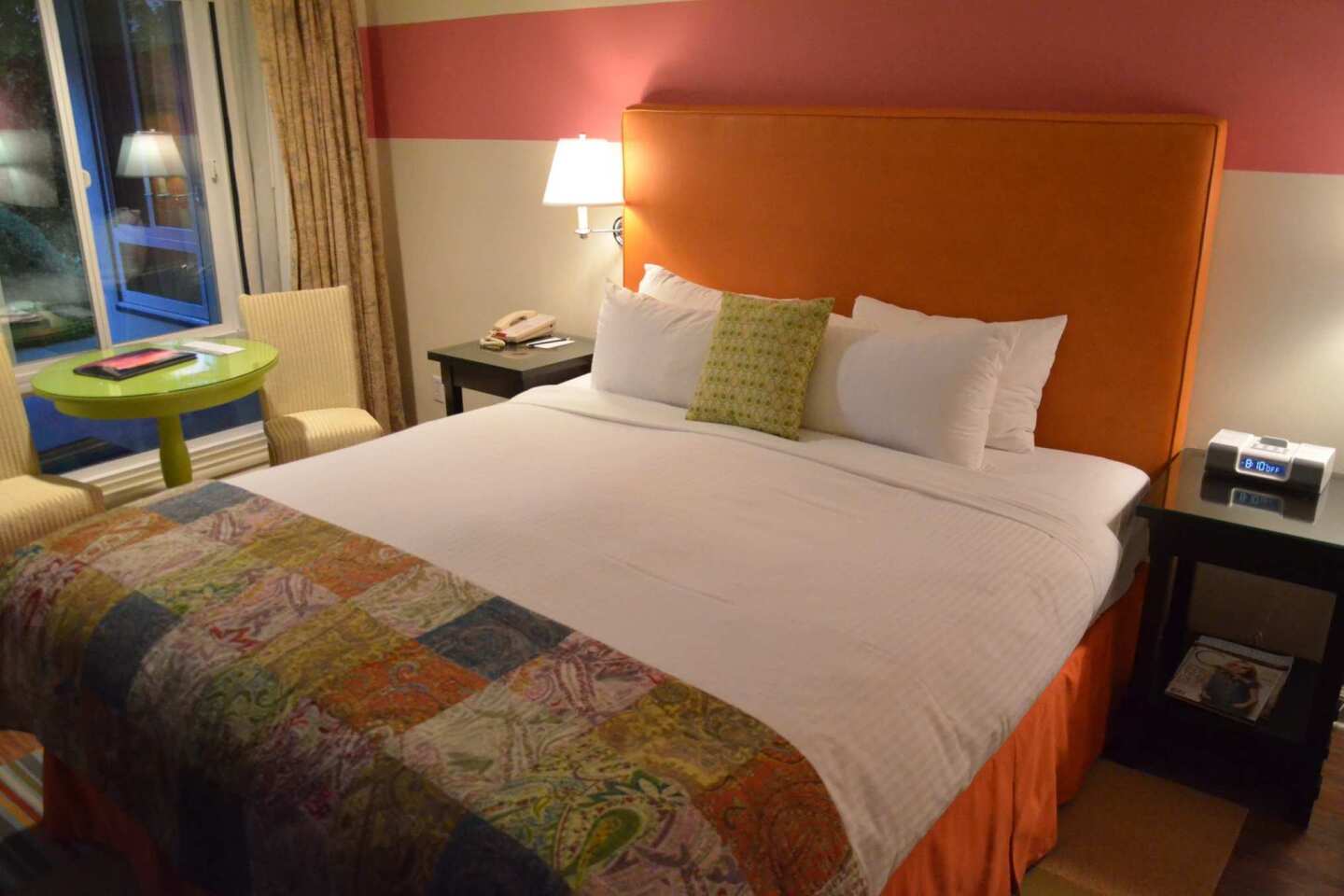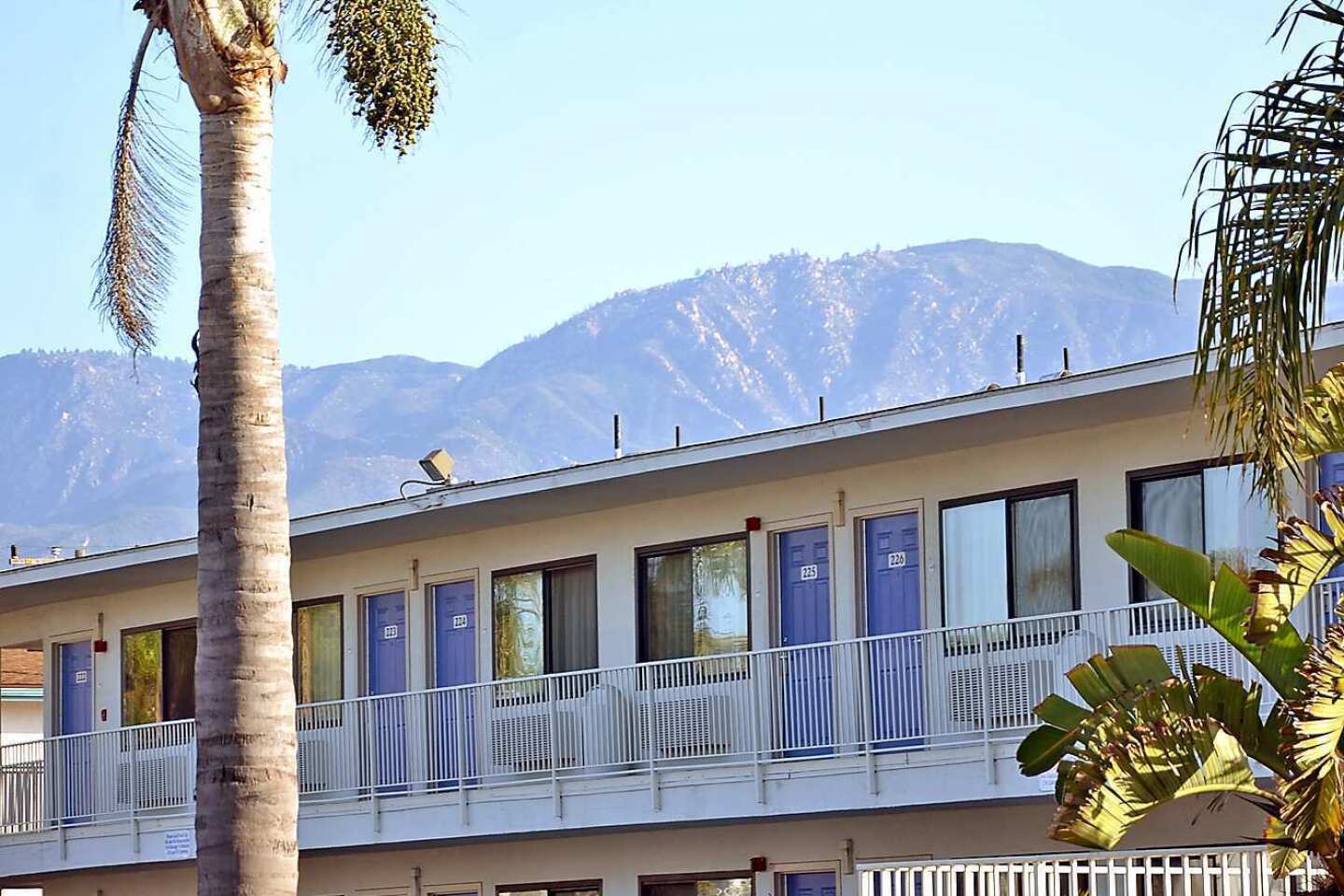Southern California Close-Ups: The gentle and genteel Santa Barbara
If all of California had been created by a romance novelist, it would probably look like Santa Barbara -- whitewashed walls, red-tile roofs, gentle slopes, lapping waves, swaying fronds, stately churches and private estates suitable for Oprah, Rob Lowe and the crowned heads of Europe.
Alas, most of California was built with only limited romance-novelist input. So Santa Barbara stands apart, its seaside location and Spanish Colonial glamour luring legions of weekend tourists and wintering gazillionaires. To understand what draws so many visitors, the only sensible thing to do is to become a Santa Barbaran,, at least for a few days.
Hence these 11 micro-itineraries, which are the latest addition to our ongoing Southern California Close-Ups series. (To see others, go to latimes.com/socalcloseups.) These ideas are designed to give you a quick look at several reliably charming Santa Barbara spots — the view from the courthouse tower, for instance, and the artists who have been peddling their work along Cabrillo Boulevard since the 1960s. But you’ll also find some newer ideas and a range of neighbors such as Simi Valley, where the Reagan Presidential Library and Museum stands on a commanding hilltop; Ventura, where tides lap against blue-collar history; and Ojai, where free spirits are forever turning up and tuning out. Or tuning in. How do you tell?
Anyway, all aboard. We’ll return later this year to check out the northwestern part of Santa Barbara County, home of wine country.
1. Ojai, how are ya?
Ojai is the sort of place where mystics meditate on hilltops (as author and teacher Jiddu Krishnamurti did from the 1920s to the 1980s), where Jack Nicholson holed up with the Monkees to make a kooky movie (as they did in 1968 for the film “Head”), where “the pink moment” is a solemn civic ritual otherwise known as sunset. The town (fewer than 8,000 people) sits in a valley full of oak trees, its residents eager to embrace all things artsy, quick to denounce any chain store or restaurant. Take in the Spanish-style arcade and bell tower that dominate downtown and the greenery and playground of Libbey Park. If it’s summer, check the schedule for the Ojai Music Festival, which brings top-flight classical musicians to the Libbey Bowl. In any month, the 91/2-mile Ojai Valley Trail accommodates walkers, bikers and horseback riders. The fanciest lodging for golfers and spa people is the Ojai Valley Inn, but if you need your quiet with a smaller price tag, head for the 12-unit Ojai Retreat (160 Besant Road, Ojai), a 5-acre nonprofit hilltop center just outside the city limits, much favored by screenwriters on deadline. Free Wi-Fi, no TVs. Very calm. For a casual, healthful lunch, bop down the hill to Farmer & the Cook (339 W. El Roblar Drive, Ojai), a café, market and farm that uses homegrown organic produce. Later, browse Bart’s Books (302 W. Matilija St., Ojai), a rambling yet tidy outdoor bookstore (since 1964), then stroll three blocks east to Osteria Monte Grappa (205 N. Signal St., Ojai) for pasta on the patio. Afterward, stroll the arcade along the main drag and finish with a homemade scoop at Ojai Ice Cream (210 E. Ojai Ave., Ojai).
2. The Reagan legacy
To understand the Great Communicator better, head for the Simi Hills and the Ronald Reagan Presidential Library and Museum (40 Presidential Drive, Simi Valley). Using an array of modern media, this complex shows the 40th president’s folksy charm, his tiny handwriting (over the decades, he scribbled thousands of favorite quotations on index cards) and a portrait of him made from butterfly wings (a gift from the Central African Republic). Exhibits cover his tenure as California’s governor from 1967 to 1975; the weak state of the U.S. economy as his first presidential term began in 1981; the harrowing details of his near-assassination; the crumbling of the Soviet empire; and his struggle withAlzheimer’s. (His early acting career gets relatively brief treatment, as does the Iran-Contra scandal.) The presidential jet may not deepen your understanding, but it’s long and shiny, and it points at a big glass wall and a view of the California hills that Reagan loved.
3. In Ventura, pitons, island options and Perry Mason
Santa Barbara will still be more than 20 miles away when you pull off the northbound 101 Freeway in Ventura. On and near Main Street, you’ll find antiques shops, thrift stores, the San Buenaventura Mission (211 E. Main St., Ventura) and vintage masonry and tile work on the walls of the Watermark Restaurant (598 E. Main St., Ventura). At 21 S. California St., you’ll see the office building where author and attorney Erle Stanley Gardner created the beloved lawyer Perry Mason. (There’s a plaque.) At Real Cheap Sports (36 W. Santa Clara St., Ventura), you’ll find a lot of Patagonia adventure wear at discount prices. Two blocks away is the flagship shop of the Patagonia empire, in the Great Pacific Ironworks building at 235 W. Santa Clara St. (In the 1950s, the company made climbing pitons from iron railroad ties.) Once outfitted, thrill seekers will want to head straight for the Channel Islands National Park Visitor Center (1901 Spinnaker Drive, Ventura) in Ventura Harbor, then catch the next outbound boat operated by park concessionaire Island Packers (1691 Spinnaker Drive, No. 105B, Ventura). Santa Cruz is the biggest and most popular of the five islands in the park, but rangers say Santa Rosa’s campground has more amenities. For the thrill-averse, dinner and a martini at Café Fiore (66 S. California St., Ventura) will do just fine.
4. Camping, candy and Carp
Hear that gently lapping surf near the Ventura-Santa Barbara county line? That might be the world’s safest beach beckoning. Boosters of Carpinteria (Carp, for short) have long bragged about its calm, kid-friendly waters, and the little town’s beach-adjacent campground and highly strollable Linden Avenue are additional selling points. If you intend to camp at Carpinteria State Beach, congratulations — you’ll be a pebble’s toss from the water and still able to walk downtown. But be prepared for a high-density, RV-intensive camping experience, and remember that summer spots often disappear seven months ahead. If you’re more interested in sleeping indoors, think about Carpinteria Shores (4975 Sandyland Road, Carpinteria), a beachfront vacation condo building at the foot of Linden that books by the week in summer. Once here, get your breakfasts at Esau’s Café (507 Linden Ave., Carpinteria), where you can also stay current on surfing videos. Get burgers for lunch ($3.65 and up) at the Spot (389 Linden Ave., Carpinteria), a much-beloved shack that looks as though it was built in the middle of the night in 1974. If the kids earn an afternoon treat, you have Robitaille’s Fine Candies (900 Linden Ave., Carpinteria), with its house-made strawberry taffy, mints, fudge and ice cream for $2 a scoop. If you’re headed back to the beach, Robitaille’s also stocks balsa-wood gliders (for throwing, not eating) for $4.95. The Carpinteria Bluffs Trail, south of the campground, makes a nice walk. Or you can rent a bike for a spin on Via Real and Foothill Road (a.k.a. California 192). It’s a 7-mile round-trip to the Santa Barbara Polo & Racquet Club, and you can also extend that trip with a glide past the coastal real estate of Padaro Lane.
5. The luxe life, in and near Montecito
Built in 1927, the Four Seasons Resort the Biltmore (1260 Channel Drive, Santa Barbara) is a wonderland of Spanish colonial arches and colored tiles, shaded by fig trees, swaddled by ferns. Not only does it face Butterfly Beach but its guests also get access to the Coral Casino, a ritzy private club with a bigger-than-Olympic pool and two restaurants. This is how the other half of the 1% live. If you can’t afford the overnight splurge, settle for a meal at the hotel’s indoor-outdoor Bella Vista restaurant or a drink in the clubby Ty Lounge. Don’t forget the shops and restaurants of Coast Village Road or Montecito’s Upper Village, next to the Santa Fe-style Our Lady of Mt. Carmel Church (1300 E. Valley Road, Santa Barbara). The Santa Barbara Zoo (500 Niños Drive, Santa Barbara) is handy too, with a modest collection of about 500 animals on 30 acres.
6. Architecture, art and what a quake can do
The Old Mission Santa Barbara (2201 Laguna St., Santa Barbara) sits next to a big lawn at the foot of a spectacular hillside neighborhood. (Are those private homes, or is this a whole block of liberal arts colleges?) In late May, you have the annual I Madonnari Italian Street Painting Festival, for which dozens of artists fill the pavement in front of the church with vividly colorful pastel images. No matter what month it is, you proceed to the Santa Barbara Courthouse (1100 Anacapa St., Santa Barbara), which might be the most handsome building in town. Don’t miss the mural room or the 85-foot-tall clock tower, which you can climb for free. It’s hard to imagine, as you stand up top, that all those red-tile roofs are a consequence of disaster. But in a way they are: It was just after a 1925 earthquake that Santa Barbara’s leaders resolved to rebuild in Spanish Colonial Revival style. Now descend and wrap up your day at the small but smart Santa Barbara Museum of Art (1130 State St., Santa Barbara).
7. Bed, breakfast and Bouchon
The Simpson House (121 E. Arellaga St., Santa Barbara) is anniversary insurance. You can get a lot of things wrong, but if you mark that big date by bringing your mate to this 1874 Victorian B&B, which sits on a verdant acre, much will be forgiven. Especially if you rent the Hayloft room. Then head for a French country dinner at Bouchon Santa Barbara (9 W. Victoria St., Santa Barbara). If you have kids along, burn some calories in Alameda Park (1400 Santa Barbara St., Santa Barbara) and neighboring Alice Keck Park Memorial Gardens (1500 Santa Barbara St., Santa Barbara). In Alameda Park, more grass and an 8,000-square-foot playground are waiting. In Keck Park, you’ll find a koi pond and dozens of plant and tree species.
8. Positively State Street
At some point, every Santa Barbara visit will include State Street; it’s the main drag, and it’s where you’ll find the handsome old train station (209 State St.), near the loud, gritty, beachy end of things. If you start at that end, you’ll have many bars to choose from and a Tuesday afternoon farmers market between Haley and Ortega streets. For a more upscale meandering experience, step into La Arcada (1114 State St., Santa Barbara), a warren of prosperous retail spaces that date to the 1920s. Everything is so genteel that the boutiques look like restaurants, the restaurants look like galleries and the galleries look like boutiques. This might not be the right place to confess aloud that you’re paying less than $100 nightly to sleep at the nearby Presidio Motel (1620 State St., Santa Barbara), but this is one way to glimpse Louis Vuitton living on a Huey, Dewey and Louie budget. If you bed down at the Presidio, you might hear a little noise from the street or a high-spirited fellow guest, but rooms are clean with low-slung beds and quirky wall designs by local artists.
9. The wharf and the art
Stearns Wharf is full of tourist businesses that locals don’t bother with, but it also has the kid-friendly touch tanks of the Ty Warner Sea Center, and it’s still a great place to stand at sunset. It’s also the starting point for an inspection tour of the arts-and-crafts booths that line up along Cabrillo Boulevard from 10 a.m. to dusk every Sunday and some holidays (Details at www.sbaacs.com.) Rent a bike from the nearest Wheel Fun Rentals outlet (23 E. Cabrillo Blvd., Santa Barbara), then retire for the night at the Hotel Oceana (202 W. Cabrillo Blvd.) And no, you’re not imagining that Sambo’s next door. This was the first one, in 1957, and now it’s the last.
10. Beach beds-and-breakfasts
For a quiet night and a beach breakfast, begin at the well-appointed Franciscan Inn (109 Bath St., Santa Barbara), an easy walk from the shore (or the marina) but three long blocks west of the tumult of lower State Street. Come morning, take a pleasant drive west on Cabrillo Boulevard, Shoreline Drive and Cliff Drive to breakfast at the Boathouse at Hendry’s Beach (2981 Cliff Drive, Santa Barbara). Take a seat indoors or out, and watch the surfers and dog-walkers along with the occasional metal-detector person as they have their way with the beach.
11. East Beach eats and sleeps
Santa Barbara has plenty of beaches, but East Beach is known for its volleyball action and all-around scene. It has a built-in snack stop, the East Beach Grill (118 E. Cabrillo Blvd., Santa Barbara). But you’re already close to the taqueria district, a.k.a. North Milpas Street. There, much-celebrated La Super Rica (622 N. Milpas St., Santa Barbara) continues to turn out remarkable food in an ultra-casual setting. Order at the counter; collect your plastic cutlery. Expect a 10- to 20-minute wait to order and a comparable wait for your freshly prepared food. For a slightly fancier setting and shorter waits, there’s Los Agaves (600 N. Milpas St., Santa Barbara), a few doors down. For an affordable hotel room, one option is the Cabrillo Inn (931 E. Cabrillo Blvd., Santa Barbara), a three-level independent hotel across the street from East Beach. Or, if you’re a sucker for roadside America, the first Motel 6 can be found around the corner at 443 Corona del Mar. At its opening in June 1962, rooms went for $6. Now they start around $65, but in August can get as high as $185.
More to Read
Sign up for The Wild
We’ll help you find the best places to hike, bike and run, as well as the perfect silent spots for meditation and yoga.
You may occasionally receive promotional content from the Los Angeles Times.
